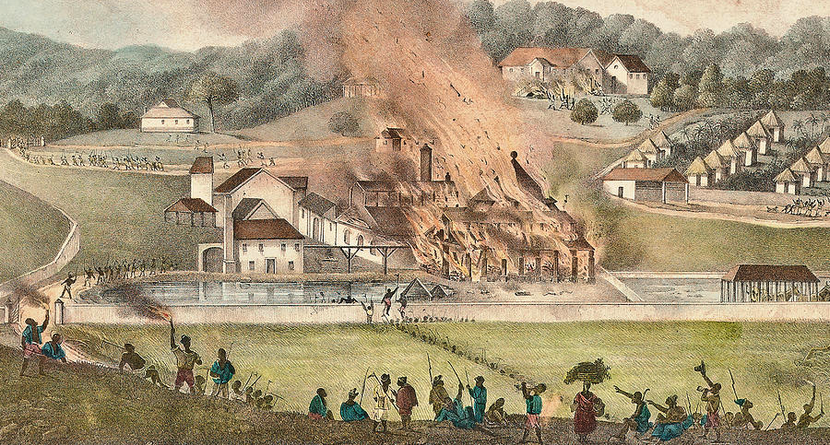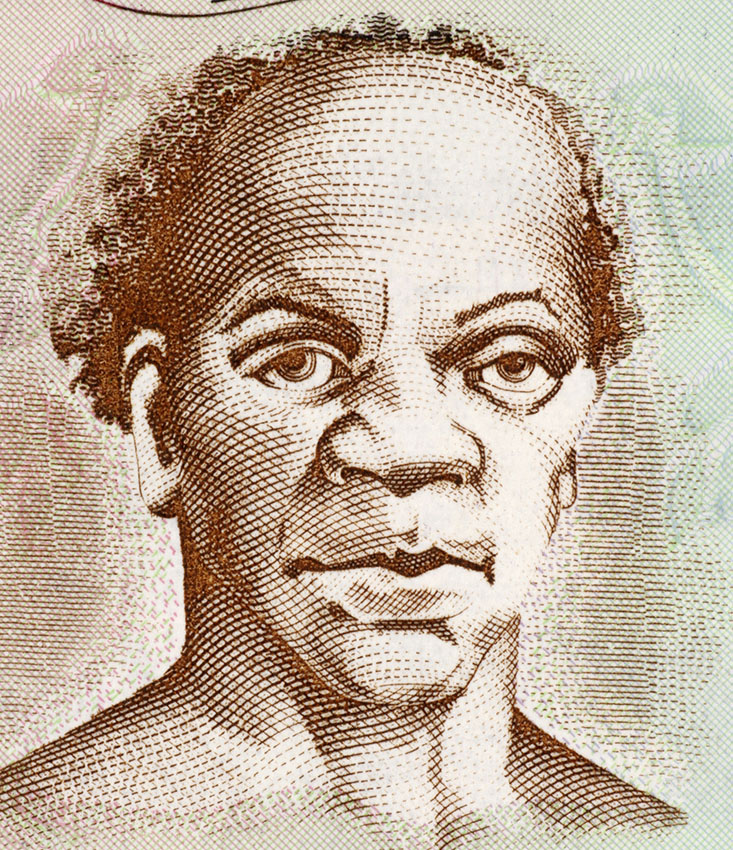This month in history: Samuel Sharpe and the Christmas Rebellion
The Christmas Rebellion, also known as the Baptist War and the Christmas Uprising, was a slave rebellion led by Samuel Sharpe in Jamaica which started on Christmas Day in 1831. We take a look at the uprising, as described in The Gazette.

What was the Baptist War?
The Baptist War, also known as the Christmas Rebellion and the Christmas Uprising, began on Christmas Day in 1831. The rebellion involved up to 60,000 of the 300,000 slaves in Jamaica who demanded more freedom and a working wage.
Led by Baptist preacher, Samuel Sharpe, slaves began a peaceful general strike on 25 December 1831. However, the strike soon turned into violence, with British forces and the Jamaican government overpowering the armed slaves by the first week of 1832.
A Gazette Extraordinary was published on 22 February 1832 documenting the events of the uprising (Gazette issue 18906): “Having received information from Mr. James Campbell, Overseer, on Y. S. Estate, with whom I had lived as book-keeper, that the slaves from Ginger-hill to Belvidere Estate, in Saint James's, intended to disarm the white people during the Christmas holidays”.
Who was Samuel Sharpe?
Samuel Sharpe was born in St. James, Jamaica sometime in 1801. Although he was born into slavery, Sharpe taught himself to read and write and became a Baptist Deacon. Thanks to his intelligence and leadership qualities, Sharpe was nicknamed “Daddy” and became the leader of the native Baptists in Montego Bay.
Having followed the growing abolitionist movement in London, Sharpe led a plan for a peaceful general strike to start on Christmas Day in 1831, with the slaves demanding more freedom and a working wage and refusing to work unless their demands were met by the state owners and managers.

How did the Christmas Rebellion begin?
As Sharpe’s idea for the general strike spread among slaves throughout Jamaica to St. James, Trelawny, Westmoreland, St. Elizabeth and Manchester, unsurprisingly news of the plan also reached some of the planters. As a result, British troops were sent to St. James and warships were anchored in Montego Bay and the Black River.
By 27 December 1831, Kensington Estate in the hills above Montego Bay was set on fire, signalling that the slave rebellion had begun. As reported in The Gazette Extraordinary of February 1982: “since sun-set six fires have been seen from the Court house, at Montego-bay, in the neighbourhood of Kensington, and extending northerly to Content; he feared the whole of the east part of the parish would be destroyed before morning.”
A peaceful strike was now impossible, and it quickly became the largest slave rebellion in the West Indies, with as many as 60,000 of Jamaica's 300,000 slaves arming themselves and seizing property across the island. Samuel Sharpe is specifically named in The Gazette as the “active person in this sceneand who seemed to have the command of them, […] belonging, I was told, to T. G. Grey, Esq., of.Croydon, in St. James, and who, I understand, is a ruler (so called) of the sect of the Baptists.”
The Christmas Rebellion lasted until 4 January 1832, with slaves easily overwhelmed by British forces and the Jamaican government.
What was the aftermath of the Christmas Rebellion?
14 planters were killed during the Christmas Rebellion, as well as over 200 slaves. Retribution following the resistance was ruthless, with over 300 enslaved men and women executed as a result of the subsequent trials. Most were hanged and their heads were cut off and placed around their plantations.
Samuel Sharpe was captured and hanged on May 23 1832 in Montego Bay on a square now called Sam Sharpe Square. He was posthumously named a National Hero of Jamaica in 1975 and his image can be found on the $50 Jamaican banknote.
According to many, the Baptist War accelerated the passing of the Slavery Abolition Act 1833 by British Parliament. The Act made the purchase or ownership of slaves illegal in the British Empire, with the exception of "the Territories in the Possession of the East India Company", ie Ceylon (now Sri Lanka) and Saint Helena. Full emancipation for all was legally granted in the British Empire on 1 August 1838.
See also
The Gazette's 12 days of Christmas
This month in history: The Crimean War and the 1856 Treaty of Paris
This month in history: The funeral of the Duke of Wellington
Images
Adolphe Duperly
Getty Images
Publication date
4 December 2020
Any opinion expressed in this article is that of the author and the author alone, and does not necessarily represent that of The Gazette.
